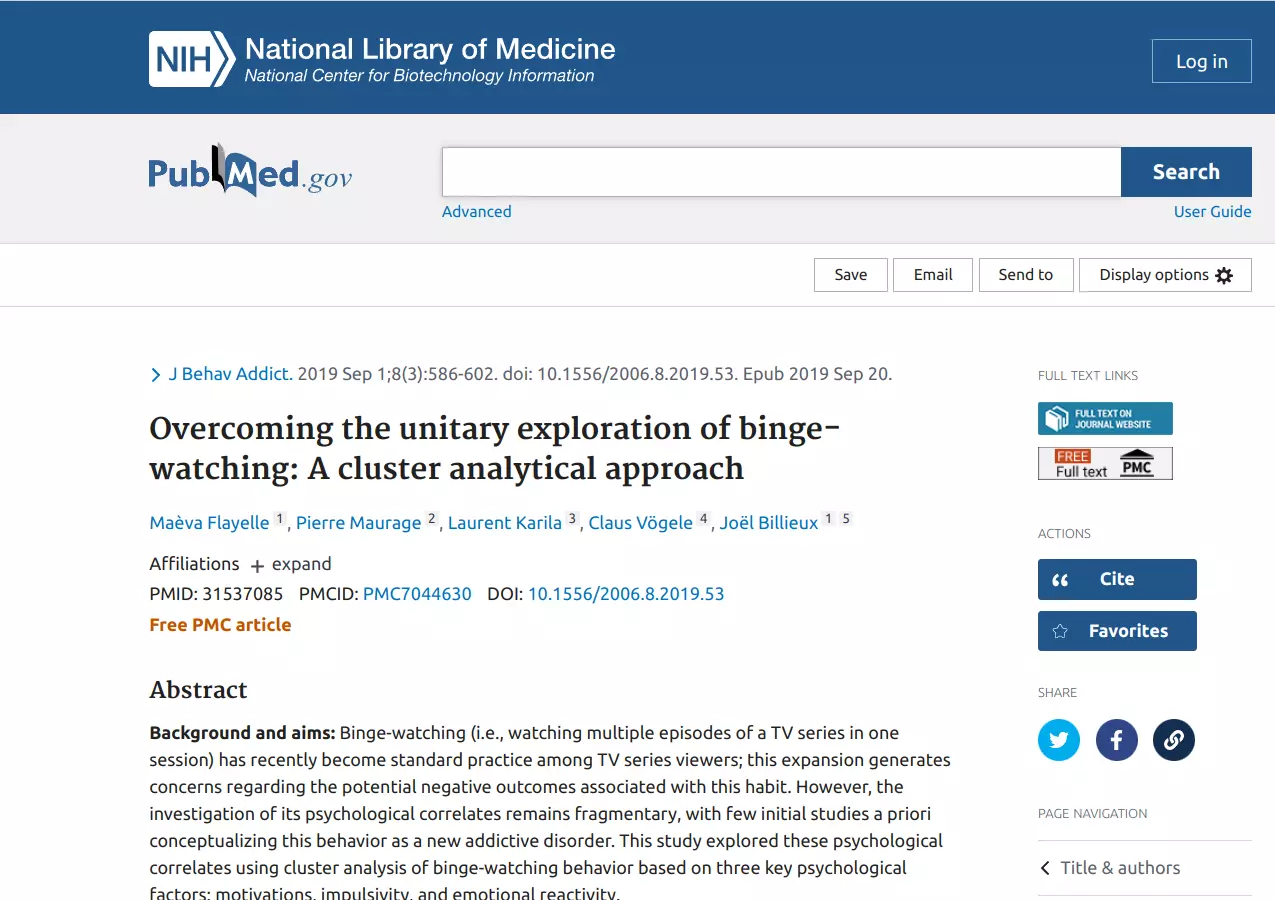Binge watching has a bad rep. But is it all that bad?
I’ve been looking at scientific papers on binge watching to better understand it and I came across this paper:
Overcoming the unitary exploration of binge-watching: A cluster analytical approach, which was published in a reputable Journal of Behavioral Addictions and had a 4 thousands plus subjects.

The goal of this paper was to figure out if there is one type of binge watching and one type of “binge watcher” person or are there distinctive profiles of “binge watchers”. Turns out, they are.
Even more, this paper clusters binge watchers into four distinctive types, and only one type would like to stop binge watching and has a problem with it. Which means that for 3 other types, this is a beneficial behavior!
What is the difference between problematic and non-problematic binge watching?
Binge watching is problematic when it happens “unplanned” and against the intention of a person doing it, because they have weak self control and can’t self regulate.
And even with that, some people might still not mind it if the benefits outweigh the costs. Only for some people it’s a problem and they feel bad about it and want to reduce it.
Benefits of binge watching
Okay, so what are the benefits?
The paper on binge watching I analyzed distinguished the following main 4 benefits:
- Social
- Emotional Enhancement
- Enrichment
- Coping/escapism
Let’s dive into them in more detail.
Social benefits
Turns out that watching the same shows as other people do helps us connect with people. It’s weird to be the odd one out who doesn’t get all the references.
It doesn’t mean you have to watch all the shows, there are simply too many of them. But it might be worth to occasionally catch up on a popular series to bond with people around you.
Emotional enhancements benefits
The paper explains it as a “Desire to watch TV series to experience intense affective states.”
Which basically means intense emotions, which are nice. Sometimes our lives are rather dull and a long session can really help bring out some strong emotions.
Enrichment benefits
Another interesting benefit according to the paper was “enrichment” that they explained as “Interest in developing one’s intellectual experiences and knowledge through TV series watching.”
It’s not usually something I would think about in the context of watching videos online, but it makes a lot of sense. Shows, educational in nature or not, can really broaden your horizons.
I can easily recall a lot of different series that either taught me interesting facts or just made me a more empathetic human being due to showing me a more diverse set of human experiences.
Coping / Escapism benefits
The last benefit described in the paper was “Coping / Escapism”, where watchers would watch TV series to avoid thinking about real-life problems or to cope with negative affect.
This can be a great way to relax and deal with a stressful situation in the moment. Especially in a situations that you can’t easily change or where you just need to wait for things to get better.
It could obviously become bad if binge watching is the only thing you do causing your problems become worse and worse, but I can totally see it as a great tool in your toolbox.
Conclusion
If you enjoy an occasional marathon of show episodes, there is nothing to be ashamed of!
Binge watching can be a healthy, useful behavior. Life is to be enjoyed after all and shouldn’t be all hustle.
But if you think that too much of a good thing might become a bad thing (eventually), you can use tools like watchlimits to help yourself set healthy boundaries.